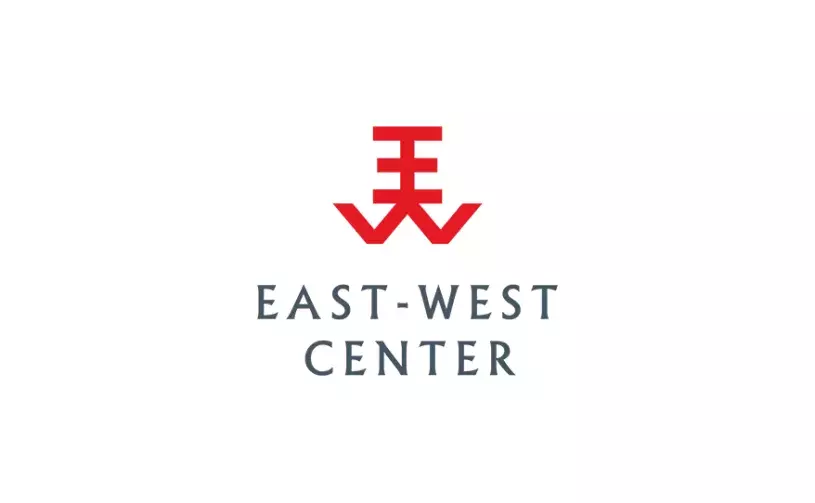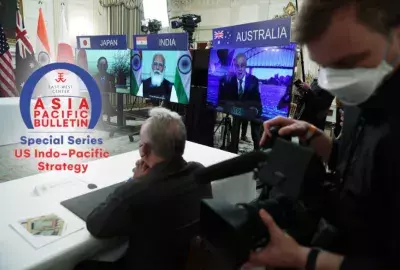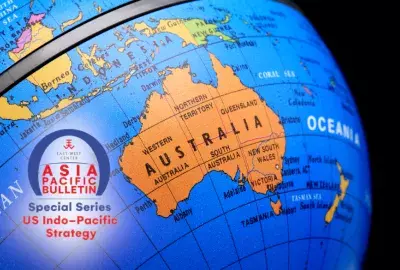Error message

|
Khun Nyan Min Htet, former East-West Center in Washington Young Professionals Program participant, explains that “As pariah states shunned by the international community for their severe human rights violations and facing sanctions and embargoes by the West, the two countries managed pragmatically to meet each others' needs.” |
Myanmar and North Korea have had a complex relationship since the 1990s. In the 2000s especially, the two countries’ military ties, including North Korea’s sale of missile technology and assistance in the construction of underground defense facilities in Myanmar, have caused international and regional concerns.
While bilateral relations between Myanmar and North Korea have not always been easy, the challenges and struggles the two countries each faced have brought them closer. As pariah states shunned by the international community for their severe human rights violations and facing sanctions and embargoes by the West, the two countries managed pragmatically to meet each others' needs. For example, the Tatmadaw — Myanmar’s military — was intent on bolstering its military strength and defense capabilities and North Korea was receptive to helping to achieving this goal.
From the end of Korean War to 1974, Myanmar and North Korea conducted relations in an unofficial setting. In 1975, the two countries established formal diplomatic relations. However, bilateral relations turned sour in 1983 when three North Korean agents attempted to assassinate the visiting South Korean president, Chun Doo-hwan, in Myanmar. The assassination bombing killed 17 members of the South Korean delegation and 4 Burmese citizens. Myanmar immediately suspended bilateral relations in response. Since the resumption of relations in the early 1990s, a barter agreement between the two countries has allowed for Myanmar to export rice, rubber, and timber in exchange for North Korean’s military technology and equipment, which allegedly included ballistic missile systems and conventional weapons.
Ties between Myanmar and North Korea reached their peak when the two countries restored full diplomatic relations in 2007. The following year, Lieutenant General Thura Shwe Mann, the Joint Chief of Staff of the Myanmar Armed Forces, traveled to Pyongyang where he signed a memorandum of understanding and solidified military-to-military cooperation. Many countries, especially in the West, were concerned with the growing ties between Myanmar and North Korea in the late 2000s. The relationship was seen as gravely destabilizing and threatening to international and regional security. And as Myanmar began making political reforms and diversifying its foreign relations starting in 2011, the United States made it clear that Myanmar needed to sever ties with North Korea in return for greater engagement and economic sanctions relief.
With Myanmar looking to mend its relationships with the West and improve its international reputation, maintaining its diplomatic and military ties with North Korea was counterproductive. The question however remains: to what extent is the Tatmadaw willing to cut ties with North Korea for the sake of improving relations with the international community?
Between 2013 and 2017, the targeted sanctions on the Tatmadaw in response to its weapons trade with North Korea signaled the West’s displeasure at Myanmar’s relations with North Korea. The quasi-civilian government headed by Aung San Suu Kyi has responded by demonstrating its willingness to cut ties with North Korea in a number of ways. These include signing the Treaty on the Prohibition of Nuclear Weapons (TPNW) in 2018 and expelling North Korean diplomats in accordance with the UN sanctions. Myanmar’s civilian government is strongly demonstrating its resolve to act in accordance with the international community in terms of relations with North Korea.
Despite the efforts of the elected civilian government, independent reports and investigations note that the Tatmadaw has continued to maintain its relations with North Korea. As recently as 2017, there were reports of North Korean instructors at the top military academies in Myanmar, suggesting that the Tatmadaw has ignored the civilian government’s plans and continued to maintain its relationship with North Korea.
On the other hand, and seemingly contradictory, Tatmadaw representatives in Myanmar’s Parliament supported the government’s decision to sign TPNW. They were in favor of signing the treaty in order to clear the cloud of suspicion by the international community of its nuclear and military ties to North Korea. “If we sign this agreement, this will clear up the past accusations against our country and the Tatmadaw. Besides, this will also contribute to our country being able to use nuclear energy peacefully,” said Lieutenant-Colonel Zaw Tun Oo, a military representative to the Lower House.
While Myanmar’s civilian government may not see a benefit in continuing relations with North Korea due to international pressure, many in the Tatmadaw see the situation differently. Arms trade with North Korea provides the Tatmadaw with necessary weapons and equipment.
Myanmar’s civilian government also has very little oversight of the activities of the Tatmadaw, and may not be aware of the remaining ties the Tatmadaw has with North Korea. Even if the civilian government is aware of the specifics of the Tatmadaw’s relationship with North Korea, it does not have many options in dealing with the issue.
The Tatmadaw operates independently of the civilian government, which makes it extremely challenging for Aung San Suu Kyi’s civilian government to terminate ties the Tatmadaw has with North Korea. For Myanmar’s civilian government, maintaining a working relationship with the Tatmadaw is just as important as improving its foreign relations with the West. Indeed, in the wake of the Rohingya crisis and renewed pressures on Myanmar’s civilian government and military from the West, North Korea is not an issue on which the two can afford to strongly contest each other.
Going forward, it is expected that Myanmar’s civilian government will respond well to the international pressure and incentives when it comes to limiting its relationship with North Korea. The extent to how successful it will be will rest in the hands of the generals in the Tatmadaw.
|
Khun Nyan Min Htet, former East-West Center in Washington Young Professionals Program participant, explains that “As pariah states shunned by the international community for their severe human rights violations and facing sanctions and embargoes by the West, the two countries managed pragmatically to meet each others' needs.” |
Myanmar and North Korea have had a complex relationship since the 1990s. In the 2000s especially, the two countries’ military ties, including North Korea’s sale of missile technology and assistance in the construction of underground defense facilities in Myanmar, have caused international and regional concerns.
While bilateral relations between Myanmar and North Korea have not always been easy, the challenges and struggles the two countries each faced have brought them closer. As pariah states shunned by the international community for their severe human rights violations and facing sanctions and embargoes by the West, the two countries managed pragmatically to meet each others' needs. For example, the Tatmadaw — Myanmar’s military — was intent on bolstering its military strength and defense capabilities and North Korea was receptive to helping to achieving this goal.
From the end of Korean War to 1974, Myanmar and North Korea conducted relations in an unofficial setting. In 1975, the two countries established formal diplomatic relations. However, bilateral relations turned sour in 1983 when three North Korean agents attempted to assassinate the visiting South Korean president, Chun Doo-hwan, in Myanmar. The assassination bombing killed 17 members of the South Korean delegation and 4 Burmese citizens. Myanmar immediately suspended bilateral relations in response. Since the resumption of relations in the early 1990s, a barter agreement between the two countries has allowed for Myanmar to export rice, rubber, and timber in exchange for North Korean’s military technology and equipment, which allegedly included ballistic missile systems and conventional weapons.
Ties between Myanmar and North Korea reached their peak when the two countries restored full diplomatic relations in 2007. The following year, Lieutenant General Thura Shwe Mann, the Joint Chief of Staff of the Myanmar Armed Forces, traveled to Pyongyang where he signed a memorandum of understanding and solidified military-to-military cooperation. Many countries, especially in the West, were concerned with the growing ties between Myanmar and North Korea in the late 2000s. The relationship was seen as gravely destabilizing and threatening to international and regional security. And as Myanmar began making political reforms and diversifying its foreign relations starting in 2011, the United States made it clear that Myanmar needed to sever ties with North Korea in return for greater engagement and economic sanctions relief.
With Myanmar looking to mend its relationships with the West and improve its international reputation, maintaining its diplomatic and military ties with North Korea was counterproductive. The question however remains: to what extent is the Tatmadaw willing to cut ties with North Korea for the sake of improving relations with the international community?
Between 2013 and 2017, the targeted sanctions on the Tatmadaw in response to its weapons trade with North Korea signaled the West’s displeasure at Myanmar’s relations with North Korea. The quasi-civilian government headed by Aung San Suu Kyi has responded by demonstrating its willingness to cut ties with North Korea in a number of ways. These include signing the Treaty on the Prohibition of Nuclear Weapons (TPNW) in 2018 and expelling North Korean diplomats in accordance with the UN sanctions. Myanmar’s civilian government is strongly demonstrating its resolve to act in accordance with the international community in terms of relations with North Korea.
Despite the efforts of the elected civilian government, independent reports and investigations note that the Tatmadaw has continued to maintain its relations with North Korea. As recently as 2017, there were reports of North Korean instructors at the top military academies in Myanmar, suggesting that the Tatmadaw has ignored the civilian government’s plans and continued to maintain its relationship with North Korea.
On the other hand, and seemingly contradictory, Tatmadaw representatives in Myanmar’s Parliament supported the government’s decision to sign TPNW. They were in favor of signing the treaty in order to clear the cloud of suspicion by the international community of its nuclear and military ties to North Korea. “If we sign this agreement, this will clear up the past accusations against our country and the Tatmadaw. Besides, this will also contribute to our country being able to use nuclear energy peacefully,” said Lieutenant-Colonel Zaw Tun Oo, a military representative to the Lower House.
While Myanmar’s civilian government may not see a benefit in continuing relations with North Korea due to international pressure, many in the Tatmadaw see the situation differently. Arms trade with North Korea provides the Tatmadaw with necessary weapons and equipment.
Myanmar’s civilian government also has very little oversight of the activities of the Tatmadaw, and may not be aware of the remaining ties the Tatmadaw has with North Korea. Even if the civilian government is aware of the specifics of the Tatmadaw’s relationship with North Korea, it does not have many options in dealing with the issue.
The Tatmadaw operates independently of the civilian government, which makes it extremely challenging for Aung San Suu Kyi’s civilian government to terminate ties the Tatmadaw has with North Korea. For Myanmar’s civilian government, maintaining a working relationship with the Tatmadaw is just as important as improving its foreign relations with the West. Indeed, in the wake of the Rohingya crisis and renewed pressures on Myanmar’s civilian government and military from the West, North Korea is not an issue on which the two can afford to strongly contest each other.
Going forward, it is expected that Myanmar’s civilian government will respond well to the international pressure and incentives when it comes to limiting its relationship with North Korea. The extent to how successful it will be will rest in the hands of the generals in the Tatmadaw.







